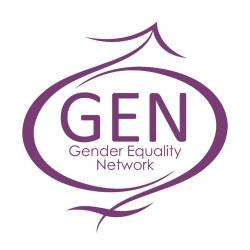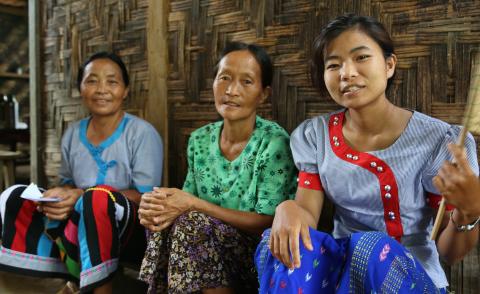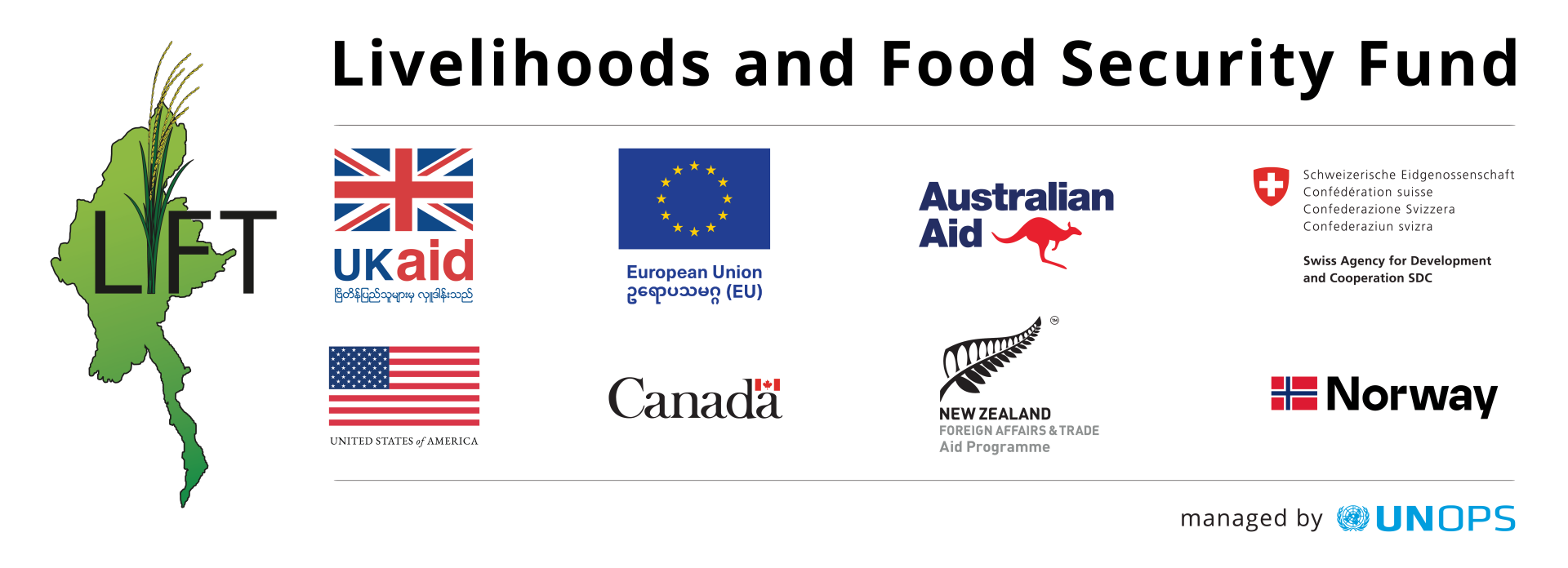
For the International Day of Non-Violence (2 October), our partner the Gender Equality Network reflects on their ongoing efforts to eliminate violence against women in Myanmar. Some examples of the challenges facing gender equality are given, and suggestions are made for improving the position of women.
GEN is a diverse network of more than 100 civil society organisations, national and international NGOs and technical specialists working to bring about gender equality and women's rights in Myanmar.
Throughout the country, violence against women continues to be a grave human rights concern[1]. In the face of many and varied challenges, the women’s movement in Myanmar seeks to advance the cause for women’s rights and gender equality, and for a Myanmar in which all women, men, girls, and boys can live a life free from violence and discrimination.
........................
Non-violence is the greatest force at the disposal of mankind. It is mightier than the mightiest weapon of destruction devised by the ingenuity of man - Mahatma Ghandi
Towards Non-Violence: Eliminating Violence against Women in Myanmar - Violence against women is a human rights violation and a fundamental barrier to eradicating poverty. The World Health Organisation estimates that 35% of women worldwide have experienced either intimate partner violence or non-partner sexual violence in their lifetime.
Recent research from GEN[2], highlights that Myanmar women suffer under multiple forms of violence, including emotional, physical, economic, and intimate partner sexual violence. The research suggests that sexual harassment is a common experience for Myanmar women.
Cultural beliefs and norms impact heavily on women’s opportunities for a healthy life, free from violence. For example, women’s menstruation is considered to be dirty; a high value is placed on women’s virginity; women are seen foremost as reproductive beings; sex is mainly a taboo topic; and the position of women in a household is deemed inferior to that of men.
As a result of these cultural beliefs, women have limited access to sexual and reproductive health and rights, particularly unmarried women (but also young men). To an extent, the beliefs allow justification of men’s violence against women - including sexual violence - if women fail to conform to cultural and social norms. Women who do not conform to gender norms can suffer from marginalization and discrimination.[3]
Some of the women who participated in GEN’s study, Behind the Silence: Violence against Women and their Resilience, Myanmar, said that social beliefs and norms around women’s sexuality hindered their access to quality information about their reproductive and sexual health rights. With the lack of information, sexual violence within intimate partner relationships, for example, may be considered to be normal. Efforts are essential to improve access to reproductive and sexual health information, services and rights in Myanmar.

Women living in conflict affected areas in Kachin State, Rakhine State, and in the south east are particularly at risk of sexual violence. On June 5, 2014 the Myanmar Government endorsed the UN Declaration of Commitment to End Sexual Violence in Conflict. However, military violations continue in spite of this commitment, as evidenced by the January 2015 rape and murder of two young ethnic Kachin teachers in northern Shan State, and other cases which remain unsolved and in which perpetrators have not been brought to justice.[4]
Mounting evidence points to a lack of available medical, legal, financial, and psychological support services for the survivors of violence, and their own limited faith in the justice system.
Last year, the comprehensive Prevention (and Protection) of Violence against Women Law (PoVAW) law was drafted by government, with the support of civil society. Review of the law is still underway. The law is essential to guarantee comprehensive protection from and redress for all forms of violence against women, but it is vital that the voice of civil society continues to be heard throughout final revisions and that the law continues to uphold international legislative standards.
Funding for and the development of initiatives such as crisis shelters for women who experience abuse, (with links to police, health care workers, legal service providers and psychosocial counsellors), must happen alongside enactment of the PoVAW Law; ensuring that professionals are supported and trained to effectively respond to incidents and to support women.
Towards Non-Violence: Violence against Women and Livelihoods[5] - Livelihoods programmes that ignore violence against women can inadvertently exacerbate incidents of violence by upsetting power dynamics within communities, and can undermine the success of projects by threatening women’s ability to engage.
Violence against women and their livelihoods are inextricable linked. Without safe economic opportunities, women and girls are often forced to resort to risk-taking and dangerous measures to provide for themselves and their families. Conversely, women who do have work may also face increased violence at home as their increased income and access to resources may be resented by spouses and partners, who may attempt to control those resources.
Livelihoods programmes that raise awareness on these issues and genuinely take gender into consideration allow a better acceptance of women’s new roles and increased incomes, decreasing the risk of violence against women.
A change in mindset will be required to allow women's economic empowerment. The overall safety and status of women can improve when there is more balanced control over the use of resources, access to services, and more equal representation in social, economic and political activities.
Towards Non-Violence: Women at the peace table - There has been an almost total lack of women’s political participation in the ongoing peace negotiations to date. Peace negotiations are considered the domain of men and norms around male leadership have hindered women’s participation. Only three women are currently amongst the negotiators - Zipporah Sein, vice-chair of the Karen National Union (KNU), Saw Mra Razar Lin (Arakan Liberation Party) and Mi Yin Chan (UPWC), with a further 12 women providing technical support.[6]
A newly formed coalition, the Alliance for Gender Inclusion in the Peace Processes (AGIPP), is a network that focuses on advancing women’s concerns (during and post-conflict) and aims to connect with all key stakeholders to advocate for inclusion of women at all stages of the peace process. Members include Shalom / Nyein Foundation, the Gender Equality Network (GEN), the Gender and Development Institute (GDI), Women’s League of Burma (WLB) and Women’s Organization Network (WON). Acknowledging and addressing the gender impacts of conflict, and women’s needs and leadership in the peace process is key to sustainable peace and a future of non-violence.
Consideration needs to be given to the development of a National Action Plan on SCR 1325 to promote women’s involvement in peace and security, and the adoption of temporary special measures, such as quotas to ensure women’s participation is guaranteed.
[1] See CEDAW Article 1, General Recommendation No. 19.
[2] Behind the Silence: Violence against Women and their Resilience, Myanmar, GEN, 2015.
[3] Raising the Curtain: Cultural Norms, Social Practices, and Gender Equality in Myanmar, GEN (Forthcoming, 2015)
[4] Same Impunity, Same Patterns, Women’s League of Burma, 2014.
[5] Violence against Women and Livelihoods Briefing Paper, GEN (2014)


